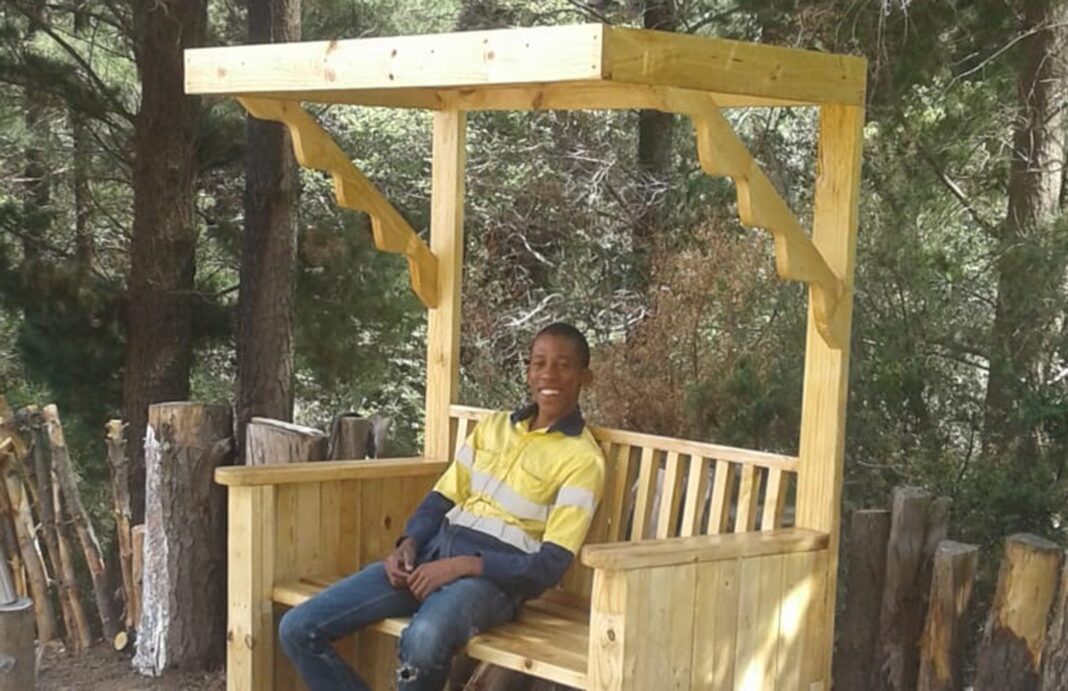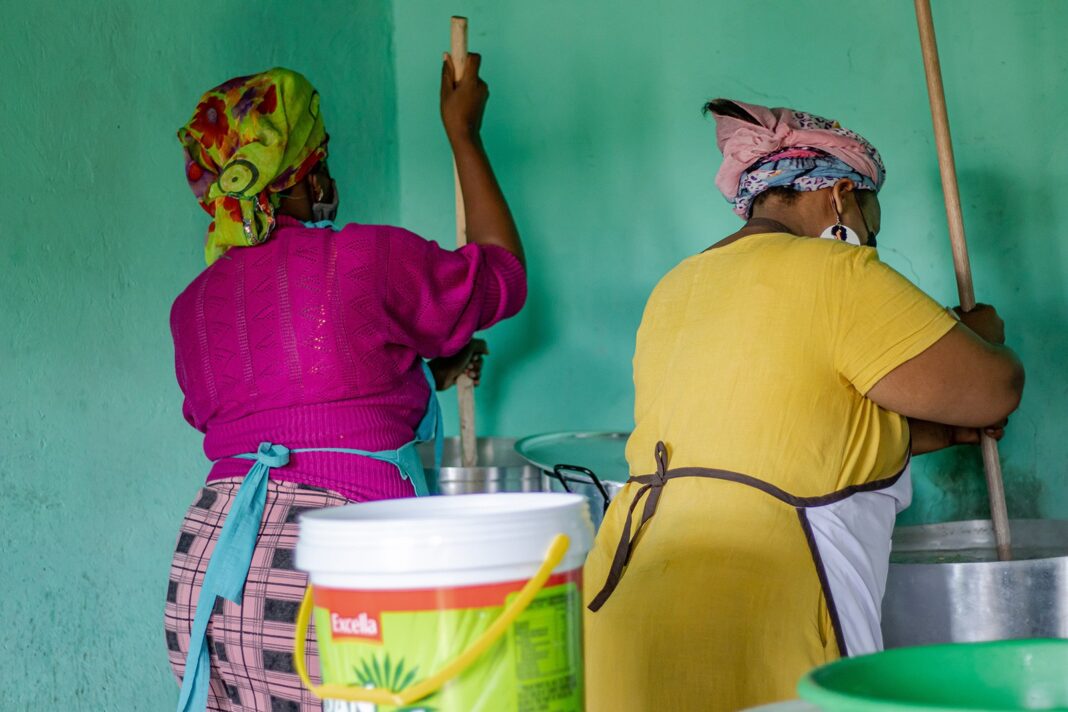Home-grown solutions for local problems. This is the cornerstone of the Movement for Economic Change’s (MEC) ideology. In this no-holds-barred interview, MEC leader Selibe Mochoboroane provides solutions to the country’s woes, some of which are self-inflicted.
Please outline the NEC’s vision for Lesotho, and why it deserves a mandate to govern the country after the upcoming general elections.
Our vision as MEC is to see a Lesotho that is free of corruption, that is able to produce enough food to feed its people. As a political party we are convinced that we are not doing enough to tap into agriculture. We should upgrade from subsistence to commercial farming. This can be achieved, among others, by changing the land tenure of Lesotho. The people with land are not able to produce, while those with the muscle to produce do not have land. We need to have laws that enable the latter group to access the land in the hands of the former group. This will significantly reduce the amount of money the country spends on imported food.
One issue that has cause a very visible divergence of views among political parties is the demarcation of constituencies. What is the MEC’s position on the matter?
What we need to get correct is the law that governs the demarcation of constituencies, and trace how we came to have that law. Our understanding is that the law that the Independent Electoral Commission (IEC) uses for purposes of demarcation is the law that talks about the population and how to manage it, the Statistics Act of 2000. It was meant to distribute services equitably. The statistics that they use come from the results of the population census. The question is, do we have a clause in that law that has a question that asks where people vote? That is a very important piece of information that would help IEC make accurate decisions when demarcating constituencies based on the distribution of voters. For example, if you look at Ha Thetsane and Maputsoe, where we have a dense population because of factory workers. On election day, where do those people vote? They go to their respective homes to vote. That’s why we are saying, IEC is using the wrong piece of legislation for the good purpose of demarcation.
Of course the issue that has perennially taken centre stage is poverty and unemployment, particularly youth unemployment. How does your party plan to address it?
The truth is we are sitting on a ticking time bomb. Unemployment stands at 38 percent as we speak. Of the 38, 20 percent are university degree holders. We say there is money, but money that is not used appropriately. For example, in the ministry of gender there is programme meant to extend a helping hand to unemployed youth. They are asked to volunteer in government ministries and are given a monthly stipend of M2000. In the ministry of finance there is the lihalahala (youth apprenticeship) community work project which engages We think all ese resources should be mobilised and consolidated and pumped into a single youth fund which will be administered by a bank, in this case, Lesotho Post Bank as kit is the only bank that belongs to Basotho. This way the youth can access the money and venture into agricultural projects. Also, have to tap into the Lesotho Highlands Water Project Treaty and use the water from the project’s dams to irrigate and create jobs. If you look at the pensions fund, it has now grown to M9-billion. When civil servant retire they only get 25 percent from that money, but MEC says they should get 50 percent. This will motivate civil servants to retire early and invest in job creation ventures.
We have seen an escalation of corruption of corruption in recent years. This has resulted in people losing confidence and trust in politicians, and interest in politics. How does the MEC plan to revive the people’s interest in national affairs such as elections?
If you look at the Transparency International corruption perception index, you will notice that Lesotho ranks among the most corrupt countries in the world. If you look at the Public Accounts Committee, we lost over M2-billion to corruption. The Auditor-general’s report also states that M3-billion is unaccounted for. My ministry has also discovered that M1-billion has been spent on uncompleted projects, and non-existent ones. People have been paid to do nothing. As MEC we have learnt that corruption starts at party level, within the ranks of the ruling parties. So we decided to have an anti-corruption committee in the party. The bottom line is you cannot fight corruption when you have a government that does not have the political will to fight corruption. No government leader has ever demonstrated preparedness to make government officials and ministers account for their corruption. If you take a look at the DCEO, its head is appointed by a politician and there is no way he can take action against his handler. The solution is for the head of the DCEO to be appointed by parliament and answer to parliament alone.
There is a belief that Lesotho’s education system has become irrelevant and out of touch with modern day needs and challenges. What’s your take on that?
This is indeed a serious concern. In the past when a student has completed their diploma they could not proceed to do s degree if they had not paid of their National Manpower Development Secretariat. The result was that we ended up with diploma holders with no research skills, and were forced to engage foreign consultants to conduct researches for us. That problem has been dealt with. Now, another challenge is the programmes that our students follow at tertiary level. Are they skills that we need, that will put them in a position to create jobs. That’s what we need to look into, producing skills that are required by the labour market. The colleges need to upgrade. For example, Fokothi needs to start offering degrees. These colleges need to diversify the programmes that offer, and reduce the need to sponsor students to study in South Africa.
There is growing discomfort, accompanied by mistrust, at the growing influence of the Chinese influence in Lesotho’s public and economic affairs. Do you share these sentiments?
That’s true. The Chinese now have gone as far as influencing decisions at decision making level, and have gone as far as becoming economic advisors to our leaders. The Chinese are involved in every aspect of our life, business, public procurement, you name it. Their influence is always corrupt. The solution is to have the political will to fight corruption. If we did the Chinese, like everybody else, would engage in business without undue influence on powerful. We should ensure the Chinese that come to our country comply with the law. You know why our country has a low collection of revenue? It is because the Chinese evade tax. They take our money and deposit in South African banks. The LRA is unable to trace the buying and selling that goes on in Chinese shops. LRA has to monitor their activities.
The thorny issue of amnesty for perpetrators of politically motivated offenses. Where does the MEC stand in this regard, and what is the best way to handle it?
I am not very much into amnesty. What we need to do is clean up our justice system such that it has credibility and integrity. Perpetrators of crime offenses must face the justice system, which in turn has a responsibility to act fairly and independently of outside influence from politicians and high ranking government officials like senior police officers. Everybody has to be subjected to the justice system. This is why we say the judiciary has to be reformed, but not in a way that people do not appear in court when it suits them.
FULL VIDEO:









